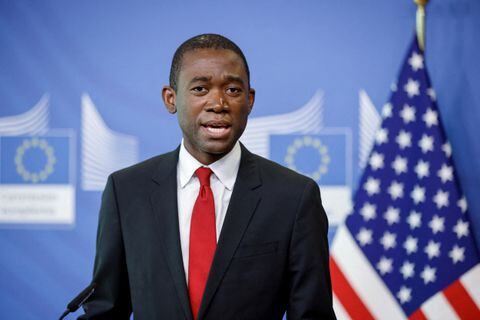In a move marking the second anniversary of Russia’s invasion of Ukraine, the United States is set to impose sanctions on over 500 targets. Deputy U.S. Treasury Secretary Wally Adeyemo revealed in an interview with Reuters that the action, taken in collaboration with other countries, will primarily focus on Russia’s military industrial complex and companies in third countries aiding Russia’s access to desired goods. This measure comes as part of Washington’s efforts to hold Russia accountable for its actions, including the conflict in Ukraine and the death of opposition leader Alexei Navalny.
Adeyemo emphasized that the sanctions are not solely an American initiative, highlighting international cooperation in the enforcement of punitive measures against Russia. This latest package of sanctions adds to the extensive list of penalties previously imposed by the United States and its allies following Russia’s invasion of Ukraine in 2022, which has resulted in significant loss of life and widespread destruction.
Despite doubts surrounding the approval of additional security assistance for Ukraine by the U.S. Congress, the Biden administration remains committed to maintaining pressure on Russia. Adeyemo stressed the importance of Congress providing necessary resources and weapons to Ukraine to bolster its defense capabilities and counter Russian aggression effectively.
While sanctions play a role in slowing down Russia’s military operations, experts caution that they may not be sufficient to halt Moscow’s attacks. Peter Harrell, a former National Security Council official, emphasized the critical role of Congress in passing additional military aid to Ukraine.
Previous sanctions have had some impact on Russia’s economy, with the Treasury Department reporting a contraction of 2.1% in 2022. However, Russia’s economy has demonstrated resilience, exceeding expectations with forecasted GDP growth of 2.6% for 2024, according to the International Monetary Fund (IMF). Despite this growth, IMF spokesperson Julie Kozack highlighted the challenges posed by Russia’s shift to a war economy, characterized by increased military spending, government support for consumption, and rising inflation.
The imposition of sanctions reflects ongoing efforts to hold Russia accountable for its actions and deter further aggression, underscoring the complex dynamics of international relations amidst geopolitical tensions.
















